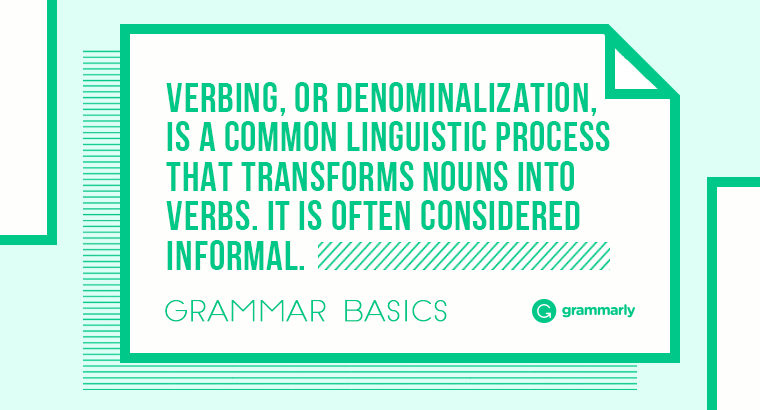
- To verb a noun means to use an ordinary noun as a verb in a sentence.
- English is flexible about the grammatical function of individual words. If you use a noun in the verb slot of a sentence, most people will understand what you mean.
- Be careful about verbing in very formal contexts, especially when there is already a common verb that would convey your meaning. Some people find verbing annoying.
Have you ever friended someone on Facebook? Friend is a noun. Adding an –ed to the end to turn it into a verb is called verbing. Some nouns that people convert into verbs already have verb forms. For example, the verb befriend means to make friends with someone. However, social media made friending popular. Now, the dictionary defines the new verb as “to add a person to one’s list of social media contacts.” What else is there to know about verbing?
How to verb
There are lots of ways to express the idea of turning a noun into a verb. The noun form of the act is verbification. Besides “to verb,” you might see “to verbify.”
Did you know that noun-to-verb conversions are abundant in English? People have been doing it for centuries. In fact, “verbify” is itself an example of the phenomenon. Nouns from all aspects of life are verbified:
Modern-day speakers often verbify brand names.
Some verbs, like to google and to xerox, become so common that they are included in lowercase form in dictionaries.
How do you feel about new verbs? Some are fads, but others might stand the test of time. If you’d like to try making some verbs yourself, social media is a great place to test your creations. If someone objects, you can always unfriend them!






